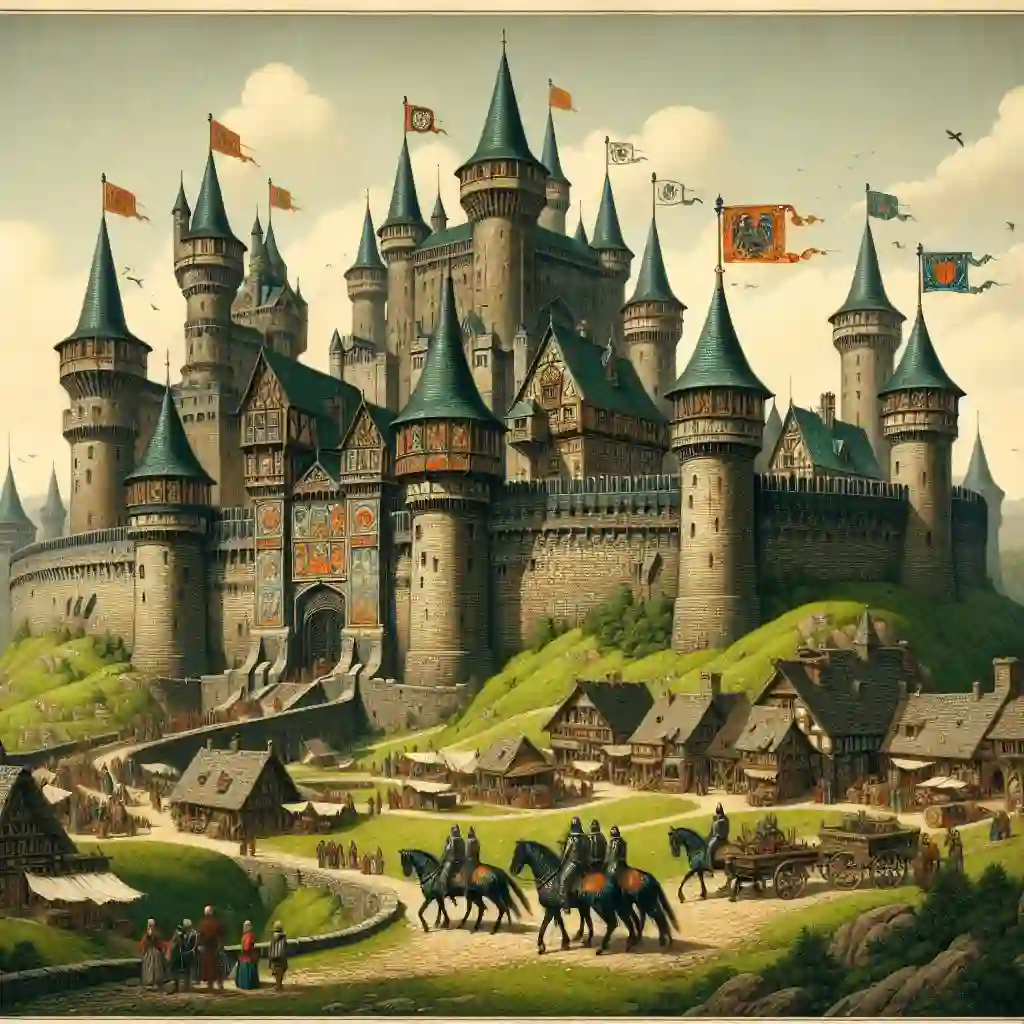kingdomの語源(語根)と覚え方
詳しい語源
英単語「kingdom」は、「king」(王)と接尾辞「-dom」(領域、状態)から構成されています。「king」は古英語の「cyning」(王)に由来し、さらにゲルマン祖語の「*kuningaz」(王)に遡ります。この「*kuningaz」は、「kunja」(家族、一族、血縁)と接尾辞「-ingaz」(~に属する者、~の子孫)から成り、全体で「一族の子孫」を意味します。「kunja」は印欧祖語の「*genh-」(子を産む)に由来します。一方、接尾辞「-dom」は古英語の「-dom」(状態、領域)から来ており、ゲルマン祖語の「*domaz」(判断、法令)に遡ります。この「*domaz」は印欧祖語の「*dhe-」(置く、設置する)に由来します。これらの要素が組み合わさり、「kingdom」は「王の領域」や「王国」を意味するようになりました。
EnglishBattle公式X で更新情報を発信しています。
kingdomと同じ語根の英単語
語根natgen
- 産む
- 生まれたもの
- 発生
語根(英語) -dom
- 状態
- 領域
kingdomの主な意味と例文
- 1名詞
意味 - 王国
- 国家
- 領土
a country, territory, or area ruled by a king or queen
例文 The kingdom was governed by a wise ruler.
その王国は賢明な支配者によって統治されていた。
- 2名詞
意味 - 領域
- 界
- 分野
a realm or domain of specific types, such as in biology (e.g., animal kingdom)
例文 In biology, organisms are classified into different kingdoms.
生物学において、組織はさまざまな界に分類される。
kingdomのWordNet
- 1名詞
意味 領域
a domain in which something is dominant
何かが支配的である領域
和訳例 - 領域
- 王国
- 国土
同義語 例文 the untroubled kingdom of reason
理性の安定した王国
a land of make-believe
空想の国
the rise of the realm of cotton in the south
南部における綿の領域の台頭
上位語 下位語 an idyllic realm of contentment and self-indulgence
満足と自己陶酔の理想的な領域
- 2名詞
意味 王国
a country with a king as head of state
王が国家元首の国
和訳例 - 王国
同義語 - kingdom
上位語 具体例 a monarchy in northwestern Europe occupying most of the British Isles; divided into England and Scotland and Wales and Northern Ireland; `Great Britain' is often used loosely to refer to the United Kingdom
ヨーロッパ北西部に位置する君主制国家。イングランド、スコットランド、ウェールズ、北アイルランドに分かれている。「グレートブリテン」は英国(イギリス)を指す場合も多い。
an ancient kingdom of the Hebrew tribes at the southeastern end of the Mediterranean Sea; founded by Saul around 1025 BC and destroyed by the Assyrians in 721 BC
地中海の南東端に位置するヘブライ部族の古代王国。紀元前1025年頃にサウルによって建国され、紀元前721年にアッシリア人によって滅ぼされた。
- 4名詞
意味 界
a basic group of natural objects
自然界の基本的な分類群
和訳例 - 界
同義語 - kingdom
上位語 下位語 all inorganic objects; contrasts with animal and plant kingdoms
すべての無機物を指し、動物界および植物界と対比される
もっと見る
